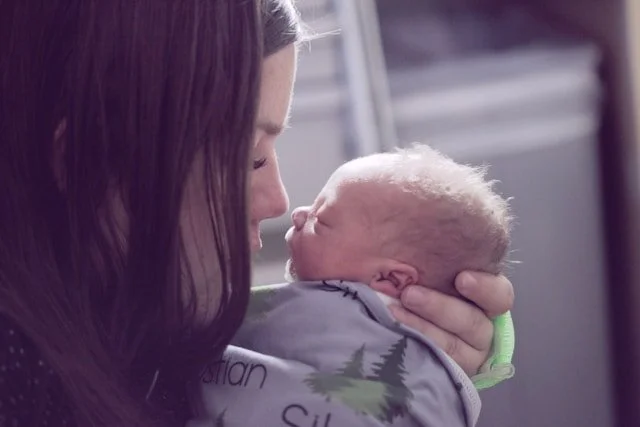
BLOG
Losing your job can feel like the ground has been pulled out from under you. Whether you saw it coming or it caught you off guard, a layoff can trigger a wave of emotions that feel overwhelming.
When most of us think about grief, we picture loss through death and the absence of someone we love. But grief doesn't only show up at funerals.
You remember to say "I love you" before bed. You show up for the big moments. But somewhere between the daily routines and endless to-do lists, something feels off.
Have you ever found yourself replaying the same conversation over and over in your mind? Maybe you're stuck analyzing what you said at dinner last week or worrying about an upcoming presentation for the third night in a row.
Every family has at least one member who tests your patience. Maybe it's the relative who constantly criticizes your choices, the one who dominates every conversation, or the family member whose negativity drains the energy from any gathering.
You strive to be a good partner. You care deeply about your relationship, and you genuinely want to show up for the person you love.
Do you find a wave of dread washing over you every Sunday afternoon? You're not alone. Many people experience what's commonly called the "Sunday Scaries" or "Sunday Blues."
The holiday season puts family, connection, and tradition front and center. When someone you love is gone, that spotlight can make their absence feel even sharper.
If you've ever looked in the mirror and felt a wave of criticism wash over you, you're not alone. Body image, which encompasses how you see and feel about your physical self, develops over time through a mix of personal experiences, cultural messages, and social influences.
When you imagined bringing your baby into the world, you likely had hopes for how it would unfold. Maybe you pictured a calm delivery or counted on certain pain management options.
Have you been powering through long hours and mounting stress for months, or maybe even years? What once seemed like a busy season now feels like a constant.
If you're thinking about starting therapy but feel anxious just imagining your first appointment, you're not alone. Before opening up to a therapist, many people worry about being judged, feel uncertain about what to expect, or experience uneasiness around sharing difficult emotions with someone new.
If you often find yourself thinking, “It’s easier to just do it myself,” you’re not alone. For many perfectionists, handing off even small tasks can feel uncomfortable or risky.
The shorter days and colder weather don’t just signal the changing seasons. For many people, they bring a noticeable dip in mood and energy. If you feel more fatigued, sad, or unmotivated as fall turns to winter, you might be experiencing seasonal affective disorder (SAD).
Life transitions include any significant shift, like career changes, relationship milestones, relocations, or health challenges. These moments disrupt the familiar patterns that once provided comfort and predictability.
When someone you love dies, the world understands your grief. People send flowers, bring casseroles, and give you space to mourn. But what happens when your loss doesn’t come with a funeral?
It’s one of the most confusing paradoxes of relationships: being physically present with your partner yet feeling profoundly alone. You share a home, maybe even a bed, but somehow you’re emotionally worlds apart.
The arrival of a new baby is often described as one of life’s greatest joys. Yet for many mothers, the postpartum period brings unexpected emotional challenges that feel overwhelming and isolating.
The postpartum period can feel overwhelming in ways you never expected. Between sleepless nights, physical recovery, and adjusting to life with a baby, it's common to feel like you're drowning.
Naturally, changes in the forecast can set off anxiety. Many people find heat waves, endless weeks of gray skies, snowstorms, and long periods of rain unpleasant.
When you and your partner are both busy, it’s all too easy for romance to take a backseat. Maybe you both have demanding jobs, or you’ve just welcomed a new baby to the family.
Many women who struggle with their mental health during the last few months of pregnancy or shortly after giving birth are unfamiliar with the term “perinatal depression.”
If you’re struggling with depression, you might be self-isolating. Social withdrawal is a common symptom of depression, and it’s a tough hurdle to overcome.
Do you have a tendency to pull out your phone and spend hours doomscrolling, only to look up and feel shocked at how much time has actually passed?
If you struggle with your body image, it can be hard to show up fully in relationships and cultivate deep connections. When we tell ourselves that we’re not worthy of love, the idea that someone else would believe we deserve care and affection seems unthinkable.
Maybe you’ve felt worn out for so long that you can’t remember the last time you really had energy. Perhaps you’ve even debated talking to a therapist about your exhaustion.
Maybe you hesitate to emotionally open up with your partner and let your guard down. You might have dated someone in the past who dismissed your feelings, minimized your problems, or gossiped about private details that you shared in confidence.
Lots of women struggle with low sexual desire. This is a frustrating problem, and it doesn’t always have a clear cause.
Maybe you’ve been struggling with the symptoms of past trauma for a long time. Even if you’ve been taking steps to heal, part of you wonders if you’re really making any progress.
Does anxiety make it hard to sleep, leaving you exhausted during the day? When anxiety keeps you tossing and turning, you might feel like you’re stuck in a draining cycle.






























